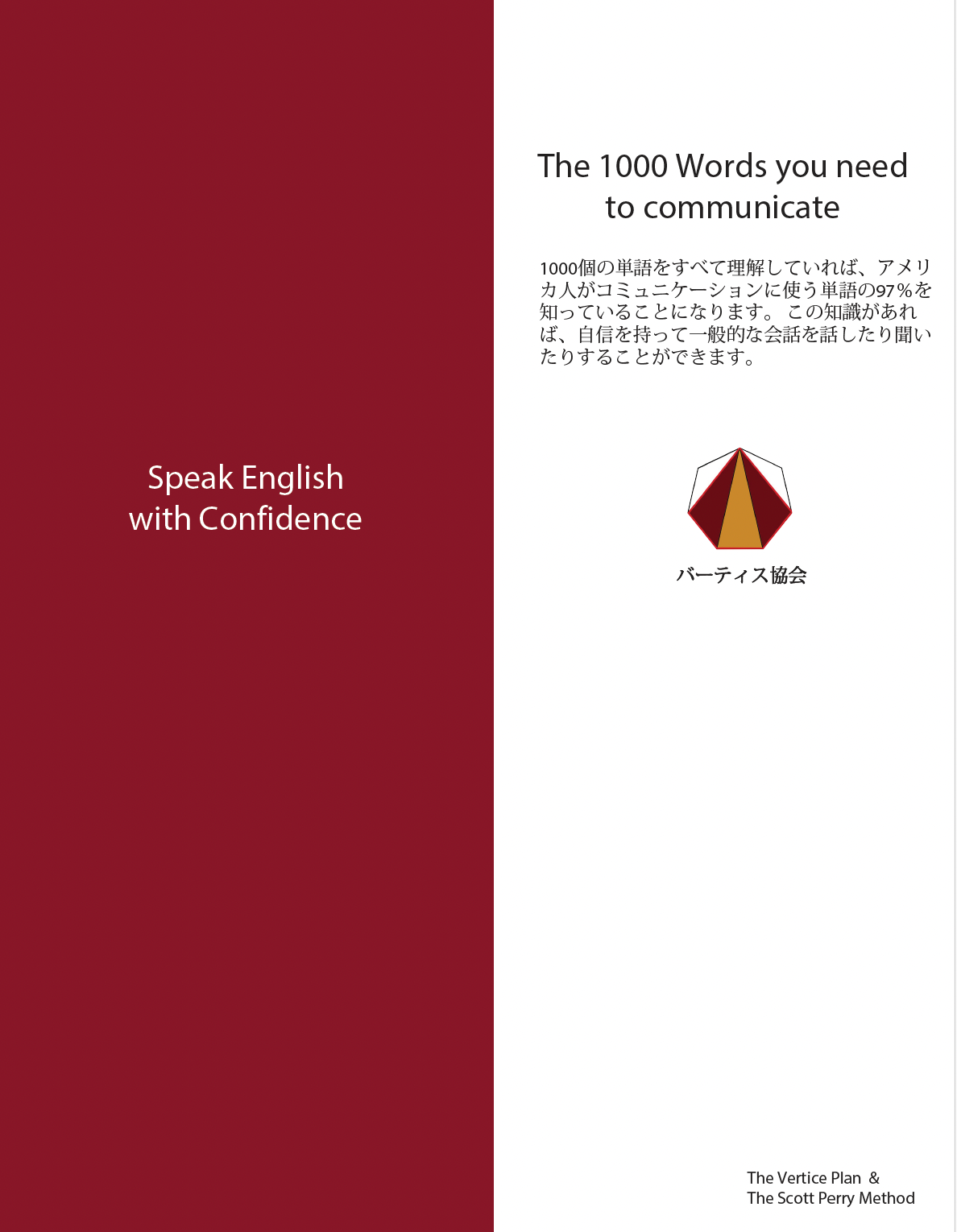Taketsugu Yamashita
Personal web page
Infrastructure Planner
Private Premium Program
01
Pronunciation
Speaking with an natural confident pronunciation
02
Listening
Understand English in conversation and social
03
18 month program
3 days per week lesson
04
Private VIP
Private lesson with support
Three Phases of Development
- Vocabulary development
- Conversation / Pronunciation
- Active usage with others.
Review this
1. Play, Playing, Played
2. Study, Studying, Studied
3. Dance, Dancing, Danced
4. Eat, Eating, Ate
5. Write, Writing, Wrote
6. Sing, Singing, Sang
7. Run, Running, Ran
8. Swim, Swimming, Swam
9. Read, Reading, Read
10. Sleep, Sleeping, Slept
11. Speak, Speaking, Spoke
12. Drive, Driving, Drove
13. Cook, Cooking, Cooked
14. Jump, Jumping, Jumped
Work, Working, Worked
Travel, Traveling, Traveled
Watch, Watching, Watched
Talk, Talking, Talked
Stand, Standing, Stood
Fly, Flying, Flew
Laugh, Laughing, Laughed
Drink, Drinking, Drank
Think, Thinking, Thought
Walk, Walking, Walked
Shop, Shopping, Shopped
Paint, Painting, Painted
Cry, Crying, Cried
Skits
Skit 1: Meeting People
Toshi: Hi, my name's Toshi. It's nice to meet you!
Keiko: Hello, Toshi! I'm Keiko. It's nice to meet you too. Where are you from?
Toshi: I'm from Osaka. How about you?
Keiko: I'm from Kyoto! We're almost neighbors.
Skit 2: Checking into a Hotel
Keiko: Excuse me, I have a reservation under the name Keiko.
Hotel Clerk: Let me check... Ah, yes! Here it is. Welcome, Keiko.
Toshi: And I'm with her. Do you have a map of the area?
Hotel Clerk: Of course,. Here you go. Enjoy your stay!
Skit 3: Ordering Food
Toshi: I'm starving! What looks good, Keiko?
Keiko: The tempura bowl looks delicious. I think I'll get that.
Toshi: Good choice. I'll have the sushi set, please.
Waiter: Understood. One tempura bowl and one sushi set coming up!
Translations:
Skit 1: Meeting People
Toshi: こんにちは、私の名前はとしさんです。はじめまして!
Keiko: こんにちは、としさん!私はけいこです。こちらこそ、はじめまして。どこから来たの?
Toshi: 大阪から来ました。けいこさんは?
Keiko: 京都からです!近所同士ですね。
Skit 2: Checking into a Hotel
Keiko: すみません、けいこという名前で予約しました。
Hotel Clerk: 確認します... あ、はい!見つかりました。けいこさん、ようこそ。
Toshi: 私も彼女と一緒です。この辺の地図はありますか?
Hotel Clerk: もちろん、としさん。これをどうぞ。滞在を楽しんでください!
Skit 3: Ordering Food
Toshi: おなかがすいた!けいこさん、何がおいしそう?
Keiko: 天丼が美味しそうですね。それを注文しようと思います。
Toshi: いい選択です。私は寿司セットをお願いします。
Waiter: 了解しました。天丼と寿司セットをお持ちしますね!
日本語に翻訳してください。
- don't open that window.
- who is the woman standing in the hall
- I cant find my book. did you see it
- he is a new employee. He came from California
- What did you eat for lunch?
- have you ever been to America or Europe?
- Stop making that noise.
- the book is in the box
- the cat is next to the box
- the box is on the cat
- Close the window, it cold in here
- I read three comic book last night.
- We must finish this project by friday.
- その窓を開けないでください。
- ホールに立っている女性は誰ですか。
- 私の本が見つかりません。 あなたはそれを見ましたか。
- 彼は新入社員です。 彼はカリフォルニアから来ました。
- 昼ご飯に何を食べたんですか?
- アメリカかヨーロッパに行ったことがありますか?
- その騒音を出すのはやめてください。
- 本は箱の中にあります。
- 猫は箱の隣にいます。
- 箱は猫の上にあります。
- 窓を閉めてください、ここは寒いです。
- 昨日の夜、漫画を3冊読みました。
- 私たちは金曜日までにこのプロジェクトを終わらせなければなりません。
- 単語が母音で始まる場合は「an」を使用し、単語が母音で始まらない場合は「A」を使用します
- I saw _____ elephant at the zoo.
- She wants to read _____ interesting book.
- Can you pass me _____ salt, please?
- He found _____ old coin in the garden.
- They live in _____ apartment near the park.
- She ate _____ apple for breakfast.
- I need to buy _____ new shirt for the party.
- We watched _____ movie last night.
- She is studying to become _____ engineer.
Opposits
- Early - Late: 早い (Hayai) - 遅い (Osoi)
- Laugh - Cry: 笑う (Warau) - 泣く (Naku)
- Entry - Exit: 入口 (Iriguchi) - 出口 (Deguchi)
- Capture - Release: 捕まえる (Tsukamaeru) - 放す (Hanasu)
- Simple - Complex: 単純 (Tanjun) - 複雑 (Fukuzatsu)
- Major - Minor: 主要 (Shuyou) - 二次的 (Nijiteki)
- Rich - Poor: 裕福 (Yūfuku) - 貧しい (Mazushii)
- Start - Stop: 開始 (Kaishi) - 停止 (Teishi)
- Heaven - Hell: 天国 (Tengoku) - 地獄 (Jigoku)
- Urban - Rural: 都市 (Toshi) - 田舎 (Inaka)
- Rough - Smooth: 荒い (Arai) - なめらか (Nameraka)
- Increase - Decrease: 増加 (Zouka) - 減少 (Genshou)
- Forward - Backward: 前方 (Zenpou) - 後方 (Kouhou)
- Accept - Reject: 受け入れる (Ukeireru) - 拒否する (Kyohi suru)
- Join - Leave: 参加する (Sanka suru) - 離れる (Hanareru)
- Above - Below: 上 (Ue) - 下 (Shita)
- Light - Dark: 明るい (Akarui) - 暗い (Kurai)
- Full - Empty: 満ちて (Michite) - 空の (Kara no)
- Hard - Soft: 硬い (Katai) - 柔らかい (Yawarakai)
- Wet - Dry: 湿った (Shimetta) - 乾いた (Kawaita)
- Ancient - Modern: 古代の (Kodai no) - 現代の (Gendai no)
- Win - Lose: 勝つ (Katsu) - 負ける (Makeru)
- Borrow - Lend: 借りる (Kariru) - 貸す (Kasu)
- Push - Pull: 押す (Osu) - 引く (Hiku)
- Deep - Shallow: 深い (Fukai) - 浅い (Asai)
- 単語が母音で始まる場合は「an」を使用し、単語が母音で始まらない場合は「A」を使用します
- I saw _____ elephant at the zoo.
- She wants to read _____ interesting book.
- Can you pass me _____ salt, please?
- He found _____ old coin in the garden.
- They live in _____ apartment near the park.
- She ate _____ apple for breakfast.
- I need to buy _____ new shirt for the party.
- We watched _____ movie last night.
- She is studying to become _____ engineer.





